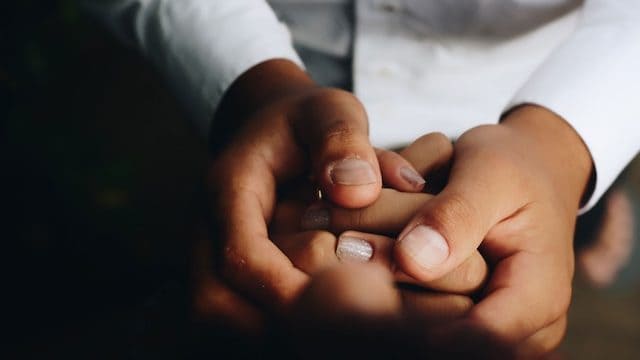A reintegration program in South Sudan has helped some 360 girls who were formerly enslaved as child soldiers. But the trauma of sexual violence continues to be a struggle for many.
Patricia (not her real name) and her sister were kidnapped from their home in 2015 by rebel forces fighting against the government. She was taken to become a child soldier, primarily carrying food and cooking, but also spying on government troops.
She was also forced to have sex soldiers.
“When we reached the military base, I was assigned to a certain soldier as his wife. He was older [about 40]. But I refused and I was beaten,” said Patricia, now 17.
“I resisted for two weeks. But one night this man came and grabbed me. I tried to fight and wrestle with him. But he was strong and overpowered me. I tried making noise and alarm, but nobody came to my rescue.”
The Guardian reports:
On 7 February 2018, her ordeal at the hands of the rebel soldiers came to an end. She was released in Yambio as part of the deal reached by authorities in Juba and the rebel group. When she went home, she was four months pregnant.
As a child soldier, Patricia was entitled to receive emotional, physical and practical support from UN and child protection agencies.
But almost 18 months on, she’s still struggling to come to terms with the trauma of what happened to her, and finding it hard to earn money to support herself and her one-year-old son.
“I keep having flashbacks. At times I feel so bad and frustrated. I isolate myself from people,” says Patricia. “It’s mum who tries to counsel and advise me to forget about the past and move on. But it’s difficult. I need medication to help me.”
Patricia has received support through the National Demobilisation, Disarmament and Reintegration Commission (DDR), which partners with Unicef and the UN mission in South Sudan. She has been assigned a social worker who help with psychosocial care.
“Patricia sometimes talks to her mother about her past, which is one of the best support circles for psychosocial support wellbeing. She is responsive and developing her relationship with her sister which is also a good sign,” explained Vanessa Saraiva, World Vision senior adviser in South Sudan.
Still, there can be a stigma around receiving help.
As Jean Lieby, chief of child protection for Unicef in South Sudan, noted that “It is recognised as a problem, in certain areas, to identify girls leaving the armed forces and groups, because they do not want the stigma of being identified.”
“Girls, therefore, often return to the community by themselves and do not come forward to be identified for assistance.”
Patricia says she has struggled to take care of her baby as her parents are poor and she has lost most of her former friends since returning home.
“Before I was kidnapped I had friends. But when I returned from captivity nobody wanted to be close to me,” she said.







Freedom United is interested in hearing from our community and welcomes relevant, informed comments, advice, and insights that advance the conversation around our campaigns and advocacy. We value inclusivity and respect within our community. To be approved, your comments should be civil.
Why is this nearly always the case. Girls are kidnapped sexually abused by their captors often for years, yet when they are finally freed or escape they are ostracised by the very community that should be supportive, these victims didn’t choose to be kidnapped and raped it was forced upon them, the same fate falls on the girls kidnapped in Nigeria, Iraq, and so many other communities they should protect them, love them instead.